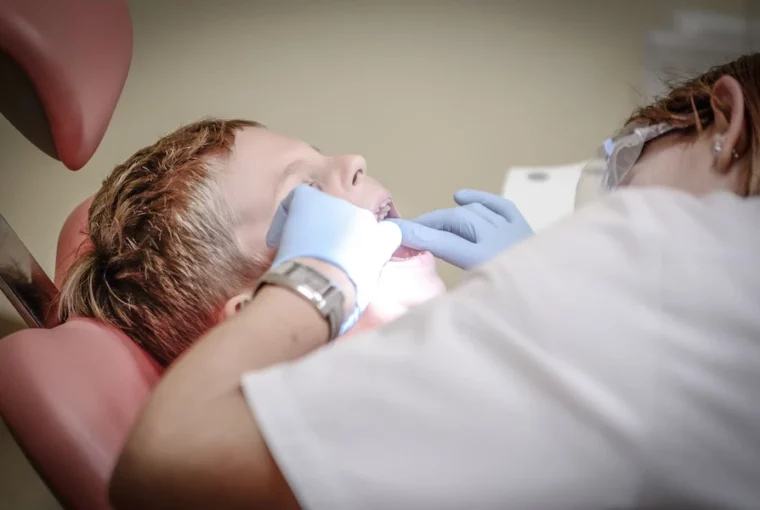A beautiful and healthy smile can be the gateway for other people to discover your personality. When we smile, we increase our self-confidence and create an excellent first impression on others who can help us professionally and personally. Our oral health is an indicator of our overall body health, and any small cavity we leave untreated now could have significant consequences in the future.
However, we lead complicated lives, and our lifestyle is fast-paced, which is, unfortunately, why year after year, more and more Americans need the professional services of dentists. But what happens when you’re a Big Apple resident and need specialized dental help? Then you will most likely have to turn to the offerings of a Manhattan endodontist. But what are the differences between endodontists in NYC and regular dentists, and why should you consult such experts? We’ll explore and answer these questions in the columns that follow.
What Is The Difference Between Endodontists And Regular Dentists?
As a common rule, regular dentists are general practitioners who can provide patients with a wide range of cosmetic and medical services, which may or may not be considered an emergency. Dentists can successfully treat certain medical conditions related to the dental pulp. Still, if the operation’s complexity is high, they will most likely refer you to the specialized help of endodontists in NYC. Endodontists are specialists who treat and prevent conditions that can affect the dental pulp, blood vessels, and nerve endings.
Suppose the experienced pain is severe, and the required intervention is too complicated to be treated in a dentist’s office. In that case, if the discomfort is intense, and the required intervention is too complex to be treated in a dentist’s office, a Manhattan endodontist can perform various dental procedures, including root canals, apicoectomies, or repairs of previous failed dental works to bring comfort to the patient.
Another aspect in which Endodontists in NYC differ from regular dentists is through education. Although both must complete a minimum of eight years of educational study, four of which will be a dental degree program, only endodontists then continue a three-year training stage, at the end of which they can receive their accreditation. Accreditation is optional in some US states, so a good idea before choosing your future Manhattan endodontist is to research their educational background. Finding someone with the proper expertise to deal with your issue is essential.
Why Should You Go To A Manhattan Endodontist?
The ratio of dentists working in New York is relatively high, with more than eighty such practitioners per one hundred thousand inhabitants. But this number is expected when considering the incidence of dental disease among Americans and its prevalence in our daily lives. Nearly all of us have at some point experienced severe dental pain that required help, and in many cases, we have probably been referred to specialized expertise. Our high-sugar diet and long working hours have played a significant role in the rise in dental ailments of recent decades, and the symptoms we all experience from time to time have become increasingly difficult to ignore. But what are these symptoms?
You should inquire about the services of endodontists in NYC if you are experiencing a severe toothache that does not subside with over-the-counter pain medication. If this is the case, and you also have high sensitivity to cold or heat, then you are most likely experiencing inflammation or infection within your dental pulp, which will need to be repaired through an intervention such as root canal therapy or an apicoectomy. Generally, these procedures are performed if the tooth decay is extensive and the required interventions are beyond the comfort level of a regular dentist.
What Does The Future Look Like For Endodontists?
Complex dental procedures have evolved enormously in recent years, and the near future promises to be filled with revolutionary technologies that can help increase the current procedures’ effectiveness. Advances in imaging technology, such as with cone beam computed tomography, allow a Manhattan endodontist nowadays to successfully diagnose conditions that, until a few years ago, would have required exploratory dental examinations. At the same time, AI is being tested to improve diagnostic accuracy and determine treatment planning.
New materials such as bioceramics are currently being researched to improve root canals’ success rate. At the same time, operations performed with lasers show real potential to remove cavities and adjacent affected tissue in a minimally invasive manner. Advances in 3D printing in recent years have also been impressive. It is now feasible to create custom endodontic instruments that can help with each case, while research into regenerative endodontics, mainly stem cells, promises soon to make it possible to repair damaged tissue in a way that does not require lengthy root canal operations.
Why Should You Maintain Good Oral Hygiene?
Simply put, because your health is on the line. Our teeth, in many ways, are some of mother nature’s most impressive creations, and compared to other ailments of our body that are unavoidable, our dental health can be exclusively connected to how we maintain and care for our teeth. Tooth decay won’t happen by itself, and while it’s true that endodontists in NYC can do wonders for your smile these days, it’s a shame to get to the point where you need dental work performed when the entire problem could have been avoided in the first place.
If you leave your dental health in the hands of fortune, you may, at some point, face ailments that can lead to unpleasant consequences. Tooth loss, pulmonary issues, or even heart disease are all complications that can occur if bacteria accumulate in our oral cavity. And if you get to the point where your tooth infection spreads to other organs, then it will most likely not be enough to call a Manhattan endodontist, but you will have to go to the nearest hospital’s emergency room. And the bill you receive afterward will probably not be a pleasant one.




